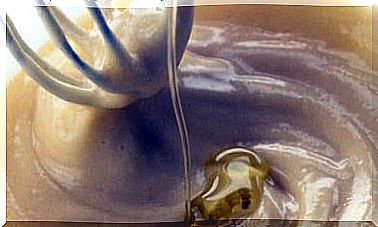Atypical Depression: Symptoms Of The Most Difficult To Diagnose Disorder

Atypical depression is a subtype of major depression.
It’s not easy to diagnose.
Its symptoms are related to conditions that can be confused with other problems such as tiredness, stress, and even metabolic diseases.
But we must also not forget that people do not always know what is happening to them.
In addition, we often think that what we are feeling is due to a simple exhaustion or a bad period.
Primary care physicians are undoubtedly the first to be aware of this symptomatology. After all, it sometimes comes masked by weight gain and drowsiness.
It’s not easy. Talking about atypical depression is talking about a disease that, nowadays, many people may be suffering without knowing it.
So, today, in our space, we want to talk about it, we want to highlight these characteristics that we must be aware of.
Atypical depression: when the body aches because the soul cries
Most health professionals have a basic protocol for identifying depression: recurrent negative thoughts, helplessness, insomnia and suicidal desires.
Hence, it would be possible to make a more accurate diagnosis to establish the typology and the pharmacological and therapeutic treatment to be followed.
However, when we talk about atypical depression, the illness is not so clear until the person has suicidal thoughts.
This is a warning sign that pushes both the patient and the family to ask for help.
However, before these thoughts arrive, the person already has their quality of life impaired in many aspects.
Let’s look at the basic features.
Physical symptoms that are confused with other medical conditions
People with atypical depression gain weight without knowing why. It is not enough just to be hungrier or more eager to eat than usual. The patient’s own metabolism changes and has a greater tendency to accumulate fat.
Another common symptom is tiredness and physical pain, especially in the arms and legs: we notice them very heavy, so much so that there are certain times when it is difficult to move.
This exhaustion makes them feel little or no desire to be part of everyday tasks.
So, little by little, they are excluding themselves from social activities.
hypersomnia
As with the rest of depressions, people often have serious problems falling asleep. In atypical depression it is common to experience extreme sleep.
Patients can sleep up to 10 hours straight. Thus, they sink into a state of continual tiredness, weakness, and seeing reality as a dream in which they feel that they do not participate.
hypersensitivity
This mood disorder is accompanied by bad mood, irritability, and the inability to catch positive emotions.
Good news, moments of distraction, laughter or festivities are seen from a distance, uncomfortable and even incomprehensible. They cannot “infect” themselves with these emotions associated with happiness.
In turn, as if that were not enough, it is common to have catastrophic thoughts.
They think that anything they start will end badly, that it’s not worth reacting or acting because they feel they have no control over anything.

times of great anxiety
Elevated anxiety is also linked to this type of depression.
Curious as it sounds, the person with atypical depression is very aware of their helpless state and feels bad about it. Thus, you may develop a self-rejection that causes you even more anxiety.
It is common for you to go through times of calmer and more drowsy, and months when nerves, stress and anxiety threaten your mind, your body and all areas of your life.
This is something that has a serious social and professional impact.
What triggers atypical depression?
Atypical depression affects men and women equally.
However, as always happens in this type of illness, they are the ones who usually ask for help first and who find it easier to manage or facilitate emotional relief.
On the other hand, it should be said that there is no single and exclusive cause that determines atypical depression. It is a multifactorial reality.
Let’s look at the possible triggers in detail:
- There is often a genetic cause. If our parents suffered from this disease, we are more likely to develop it if, for example, we face something complex: a loss, an emotional separation, a traumatic event…
- Experts explain that it usually develops from a combination of two facts: sometimes, a traffic accident and having the genetic predisposition trigger depression.
- Other times, it’s a lot of small things that become big. Family problems, personal dissatisfaction, everyday stress and the dynamics learned to manage our emotional world trigger this state.

Finally, with regard to treatment, as always in the treatment of this disease, it is best to seek a multidimensional strategy: medication, psychological therapy, social support…
Atypical depression usually appears and disappears within two-year periods.
However, it is a subtype of major depression and, therefore, we are facing a serious reality, in which the family environment must always be close, always vigilant, patient and understanding with the affected person.









